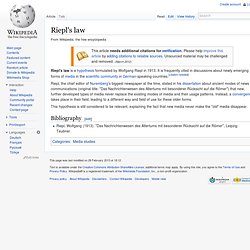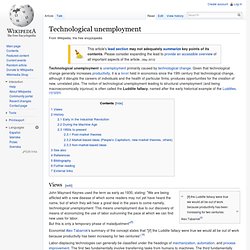

Propaganda of the deed. Propaganda of the deed (or propaganda by the deed, from the French propagande par le fait) is specific political action meant to be exemplary to others.

It is associated mainly with violent political actions but it can also have non-violent interpretations.[1] Anarchist origins[edit] Various definitions[edit] One of the first individuals to conceptualise propaganda by the deed was the Italian revolutionary Carlo Pisacane (1818–57), who wrote in his "Political Testament" (1857) that "ideas spring from deeds and not the other way around. " Mikhail Bakunin (1814–1876), in his "Letters to a Frenchman on the Present Crisis" (1870) stated that "we must spread our principles, not with words but with deeds, for this is the most popular, the most potent, and the most irresistible form of propaganda Some anarchists, such as Johann Most, advocated publicizing violent acts of retaliation against counter-revolutionaries because "we preach not only action in and for itself, but also action as propaganda.
Riepl's law. Riepl's law is a hypothesis formulated by Wolfgang Riepl in 1913.

It is frequently cited in discussions about newly emerging forms of media in the scientific community in German-speaking countries. [citation needed] Riepl, the chief editor of Nuremberg's biggest newspaper at the time, stated in his dissertation about ancient modes of news communications (original title: "Das Nachrichtenwesen des Altertums mit besonderer Rücksicht auf die Römer") that new, further developed types of media never replace the existing modes of media and their usage patterns.
Instead, a convergence takes place in their field, leading to a different way and field of use for these older forms. This hypothesis is still considered to be relevant, explaining the fact that new media never make the "old" media disappear. Luddite fallacy. Technological unemployment is unemployment primarily caused by technological change.

Given that technological change generally increases productivity, it is a tenet held in economics since the 19th century that technological change, although it disrupts the careers of individuals and the health of particular firms, produces opportunities for the creation of new, unrelated jobs. The notion of technological unemployment leading to structural unemployment (and being macroeconomically injurious) is often called the Luddite fallacy, named after the early historical example of the Luddites.[1][1][2][3] Views[edit] [If] the Luddite fallacy were true we would all be out of work because productivity has been increasing for two centuries John Maynard Keynes used the term as early as 1930, stating: "We are being afflicted with a new disease of which some readers may not yet have heard the name, but of which they will hear a great deal in the years to come-namely, technological unemployment.
Is Technology Moving Too Fast? <data:blog.pageTitle/> Luddite. The Leader of the Luddites, engraving of 1812 The Luddites were 19th-century English textile artisans who protested against newly developed labour-saving machinery from 1811 to 1817.

The stocking frames, spinning frames and power looms introduced during the Industrial Revolution threatened to replace the artisans with less-skilled, low-wage labourers, leaving them without work. Although the origin of the name Luddite (/ˈlʌd.aɪt/) is uncertain, a popular theory is that the movement was named after Ned Ludd, a youth who allegedly smashed two stocking frames in 1779, and whose name had become emblematic of machine destroyers.[1][2][3] The name evolved into the imaginary General Ludd or King Ludd, a figure who, like Robin Hood, was reputed to live in Sherwood Forest.[4][a] Background[edit] Neo-Luddism. A novel written by Edward Abbey which concerns the use of sabotage to protest environmentally damaging activities in the American Southwest.

Development criticism. Critique of technology. Critique of technology is an analysis of the negative impacts of technologies.

It is argued that, in all advanced industrial societies (not necessarily only capitalist ones), technology becomes a means of domination, control and exploitation, or more generally something which threatens the survival of humanity. The critique of technology overlaps with the philosophy of technology but whereas the latter tries to establish itself as an academic discipline the critique of technology is basically a political project, not limited to academia. It features prominently in neomarxism (Herbert Marcuse and Andrew Feenberg), ecofeminism (Vandana Shiva) and in postdevelopment (Ivan Illich) Postdevelopment theory. Degrowth. Degrowth (in French: décroissance,[1] in Spanish: decrecimiento, in Italian: decrescita) is a political, economic, and social movement based on ecological economics and anti-consumerist and anti-capitalist ideas.[2] It is also considered an essential economic strategy responding to the limits-to-growth dilemma (see The Path to Degrowth in Overdeveloped Countries and Post growth).

Degrowth thinkers and activists advocate for the downscaling of production and consumption—the contraction of economies—arguing that overconsumption lies at the root of long term environmental issues and social inequalities. Key to the concept of degrowth is that reducing consumption does not require individual martyring and a decrease in well-being.[3] Rather, 'degrowthists' aim to maximize happiness and well-being through non-consumptive means—sharing work, consuming less, while devoting more time to art, music, family, culture and community. Traditionalist School. Green anarchism. Green anarchism (or eco-anarchism) is a school of thought within anarchism which puts a particular emphasis on environmental issues.

A green anarchist theory is normally one that extends anarchist ideology beyond a critique of human interactions, and includes a critique of the interactions between humans and non-humans as well.[1] This often culminates in an anarchist revolutionary praxis that is not merely dedicated to human liberation, but also to some form of ecological liberation,[2] and that aims to bring about an environmentally sustainable anarchist society. Early ecoanarchism[edit] Henry David Thoreau[edit] Anarchism started to have an ecological view mainly in the writings of American anarchist and transcendentalist Henry David Thoreau.
Technophobia. Prevalence[edit] A study published in the journal Computers in Human Behavior was conducted between 1992 and 1994 surveying first-year college students across various countries.[5] The overall percentage of the 3,392[6] students who responded with high-level technophobic fears was 29%.[6] In comparison, Japan had 58% high-level technophobes, India had 82%, and Mexico had 53%.[6] A published report in 2000 stated that roughly 85 to 90 percent of new employees at an organization may be uncomfortable with new technology, and are technophobic to some degree.[7]

Technorealism. Technorealism is an attempt to expand the middle ground between Techno-utopianism and Neo-Luddism by assessing the social and political implications of technologies so that people might all have more control over the shape of their future.

The technorealist approach involves a continuous critical examination of how technologies might help or hinder people in the struggle to improve the quality of their lives, their communities, and their economic, social, and political structures.[1] Although technorealism began with a focus on U.S. -based concerns about information technology, it has evolved into an international intellectual movement with a variety of interests such as biotechnology and nanotechnology.[2] See also[edit] Technocriticism.
Technological utopianism. In the late 20th and early 21st centuries, several ideologies and movements, such as the cyberdelic counterculture, the Californian Ideology, transhumanism,[1] and singularitarianism, have emerged promoting a form of techno-utopia as a reachable goal. Cultural critic Imre Szeman argues technological utopianism is an irrational social narrative because there is no evidence to support it.